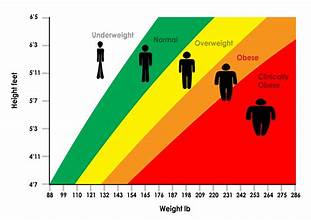Nutrition, Diet, and Weight Challenges
The obesity epidemic is growing worldwide. While fast food and sedentary lifestyles are common culprits, there's more beneath the surface. A deeper understanding is needed to uncover other potential causes of weight gain and obesity.

10 Lesser-Known Causes of Obesity
- How Pollution affect weight loss:
- Hypertension
- Obesity
- Diabetes and other auto-immune diseases
- Sleep debt:
- Avoid to go to bed immediately after meal at least 1 hours to 2 hours after your meal.
- Be sure if your bed is in a good position ( head in Eastern position or head in Northern position) and also be sure if your room is well aerated.
- Do not take water before bed time it can disturb your sleep.
- Remove technological materials (TV, Phone, Computer,...) in your bed room.
- Avoid to take dinner to late because of enzymes are decreased .
- Air conditioning:
- Spend more time outdoors when weather permits.
- Allow for slight variations in indoor temperatures instead of keeping rooms overly cool.
- Incorporate regular physical activity into your routine, especially during seasons when AC use is highest.
- Decreased smoking:
- Increased appetite due to the absence of nicotine's suppressive effect.
- Changes in taste and smell, making food more enjoyable.
- Emotional eating as a replacement coping mechanism for stress.
- Adopting a healthy, balanced diet rich in whole foods.
- Engaging in regular physical activity to boost metabolism.
- Using behavioral therapies to manage cravings and emotional eating.
- Medication: Many modern drugs can cause weight gain, and their usage is increasing.
- Demographics: Aging populations and ethnic shifts may be influencing obesity rates.
- Older maternal age: Children born to older mothers may have a higher risk of obesity.
- Ancestral environment: The environmental factors affecting past generations may genetically predispose offspring to obesity.
- Obesity and fertility: If obese individuals are more fertile, genetic factors could contribute to increasing obesity rates.
- Obese spouse unions: Genetic combinations from obese couples may amplify obesity in the next generation.
Hormonal disruption by environmental pollutants may impact body weight regulation.
How Pollution Increases Weight
It's well accepted that reduced physical activity and fast food are linked to obesity. Even if you exercise regularly and eat well, you may still get different (and possibly disappointing) results than someone who follows the same diet. What causes this disparity?
There are many possible answers, but one of the least visible causes may be going straight into your body without you knowing it – air pollution.
Pollution and Hormones
Hormones control body weight. And many of today's pollutants affect our hormones. Fine particles, and ultrafine particles — particles measuring less than 0.1 microns in diameter — are believed to be the pollutants most responsible for disrupting metabolic function.
When you breathe in, particle pollutants irritate the alveoli in your lungs that normally allow oxygen to pass into your bloodstream. Consequently, the lining of your lungs releases hormones that make insulin less effective, diverting blood from insulin-sensitive muscle tissue and stopping your body from properly regulating its blood sugar levels.
Additionally, particle pollution may cause your body to flood your blood with higher levels of inflammatory molecules called “cytokines”, which trigger immune cells to invade otherwise healthy tissue. This response not only interferes with your tissue’s ability to respond to insulin, but the resulting inflammation may also disrupt the hormones and brain processing that govern your appetite.
This can result in feeling hungry even when you’re totally full or satiated. The additional food you eat to feed your artificial appetite may result in weight gain over time.
Health Issues Linked to Pollution
Advice
Losing weight is challenging enough without having to worry about invisible pollutants wreaking havoc on your metabolism.
You can’t take on the burden of solving the global air quality crisis alone, but you can take control of your indoor air quality and begin making positive changes in your life today.
A healthy diet which has the ability to detoxify our body and regular exercise are still the most vital keys to success in your weight-management journey, but a little clean air might help boost your overall health and wellness.
Chronic sleep deprivation may lead to weight gain, especially fat accumulation in the upper back and shoulders.
Understanding Sleep Debt
How Lack of Sleep Contributes to Body Fat Accumulation
What is Sleep Debt?
Sleep debt refers to the difference between the amount of sleep your body needs and the amount you actually get. Over time, consistently getting too little sleep accumulates into a "debt" that can affect your health and well-being.
Connection Between Sleep and Weight
Scientific studies have shown that inadequate sleep disrupts hormonal balance, increases appetite, and slows down metabolism. These changes contribute to weight gain, especially when sleep loss becomes chronic.
One of the less discussed but important findings is that sleep debt can lead to fat accumulation in specific areas of the body, such as the upper back and shoulders. These regions may store more fat due to increased cortisol levels and other metabolic changes triggered by sleep deprivation.
Sleep debt :Getting too little sleep can increase body weight.
Today, many get less shut-eye than ever. Some studies show that sleep debt cause accumulation of fat in upper back and shoulders Insufficient sleep can lead to weight gain due to hormonal imbalances, increased appetite, and reduced metabolism. Specifically, it can disrupt the hormones that regulate hunger ghrelin and fullness leptin, leading to increased calorie intake and a tendency to store more fat. Additionally, sleep deprivation can make you feel more tired, potentially leading to decreased physical activity and further contributing to weight.
Hormonal Imbalance:Lack of sleep can increase levels of ghrelin, the hormone that stimulates appetite, making you feel hungrier. Conversely, it can decrease levels of leptin, the hormone that signals fullness, making you less likely to recognize when you've eaten enough. Stress hormones like cortisol may also increase, further impacting appetite and fat storage.
Increased Calorie Intake: The hormonal changes mentioned above can lead to increased calorie consumption, especially for high-calorie, high-fat, and high-sugar foods. Feeling tired and lethargic due to lack of sleep can also lead to making less healthy food choices or opting for convenience foods, which are often less nutritious.Reduced Metabolism: Sleep deprivation can decrease your , Basal metabolic rate(BMR) meaning your body burns fewer calories at rest. This can lead to increased fat storage and make it harder to lose weight or maintain a healthy weight.
Decreased Physical Activity: When you're tired from lack of sleep, you're less likely to be active and more likely to engage in sedentary activities. Reduced physical activity means you're burning fewer calories and may be more prone to weight gain.
Weight Fluctuations Even a few nights of sleep deprivation can cause short-term weight fluctuations, and consistently getting less sleep is linked to higher rates of obesity and increased BMI with fat accumulation in upper back part and shoulders As conclusion, getting enough sleep is crucial for maintaining a healthy weight. It helps regulate hormones that control appetite and metabolism, and ensures you have the energy to stay active.
Why It Matters Today
In our modern, fast-paced lives, many people sacrifice sleep to meet work demands, social commitments, or due to screen time. This long-term sleep reduction is silently contributing to widespread health issues including obesity, diabetes, and cardiovascular disease.
Advice:
Climate control reduces the body's need to burn calories for thermal regulation.
How Air Conditioning May Be Linked to Obesity
In the modern age, air conditioning (AC) has become a standard comfort in homes, offices, and cars. While it provides welcome relief from extreme heat, some health experts have raised concerns about its potential link to rising obesity rates. But how could cooler indoor temperatures possibly influence body weight?
Temperature and Energy Expenditure
Human bodies expend energy to maintain a stable internal temperature. When the surrounding environment is cold, our bodies burn more calories through a process called thermogenesis to stay warm. Conversely, in warmer environments, we sweat and adjust blood circulation to cool down — also using some energy.
When we spend most of our time in climate-controlled environments, especially in the thermal comfort zone (around 20-25°C or 68-77°F), our bodies are not challenged to regulate temperature. As a result, we burn fewer calories, which can contribute to weight gain over time if not balanced by physical activity or dietary adjustments.
Reduced Physical Activity
Another factor is that air-conditioned environments may discourage outdoor activity during warmer seasons. When the heat is intense, people are more likely to stay indoors where it’s cool — reducing opportunities for walking, playing, or engaging in physical exercise.
Disrupted Natural Rhythms
Constant exposure to artificial climates can disrupt natural cues that guide eating and sleeping patterns. For example, warm weather typically reduces appetite and promotes outdoor movement, while cooler weather may promote rest and higher calorie intake. Air conditioning blunts these seasonal variations, potentially encouraging year-round overeating and inactivity.
What Can Be Done?
This doesn’t mean you have to give up AC altogether. However, it’s helpful to:
Conclusion
While air conditioning alone isn’t the cause of obesity, it may be one of many modern lifestyle factors that contribute to reduced energy expenditure. Understanding this connection helps in making small, conscious changes that support a healthier lifestyle in a climate-controlled world.
With fewer people smoking, a known appetite suppressant, average body weight may increase.
Decreased Smoking and Rising Body Weight
Decreased smoking: With fewer people smoking, a known appetite suppressant, average body weight may increase.
The Link Between Smoking and Appetite
Nicotine, the primary addictive substance in cigarettes, has long been known to suppress appetite and increase metabolic rate. Smokers often report eating less, and studies have shown that nicotine can reduce body weight by altering hunger signals in the brain and increasing energy expenditure.
Public Health Success Brings New Challenges
Over the past few decades, global health campaigns have successfully reduced smoking rates. This is a major victory for public health, lowering the risks of cancer, heart disease, and respiratory illness. However, one side effect has emerged: as people quit smoking, many experience weight gain — often between 5 to 10 kilograms (11 to 22 pounds) within the first year of quitting.
While quitting smoking greatly improves long-term health, the associated weight gain can be a short-term challenge that must be managed with support and education.
Why Does Weight Gain Happen?
The weight gain seen after quitting smoking is usually due to a combination of factors:
Managing Weight After Quitting
Weight gain doesn’t have to be inevitable. With the right strategies, former smokers can maintain a healthy weight while reaping the many benefits of quitting. Effective techniques include:
Conclusion
The decline in smoking rates is a public health triumph. However, it brings new considerations for weight management. Understanding the relationship between nicotine and appetite can help guide individuals and health professionals in supporting healthy lifestyle transitions after quitting smoking.

More Possible Explanations
- A fat-inducing virus
- Increased childhood depression
- Reduced dairy consumption
- Hormones used in food production

These factors deserve further study and consideration in tackling the obesity epidemic. What do you think might be driving this complex issue?

